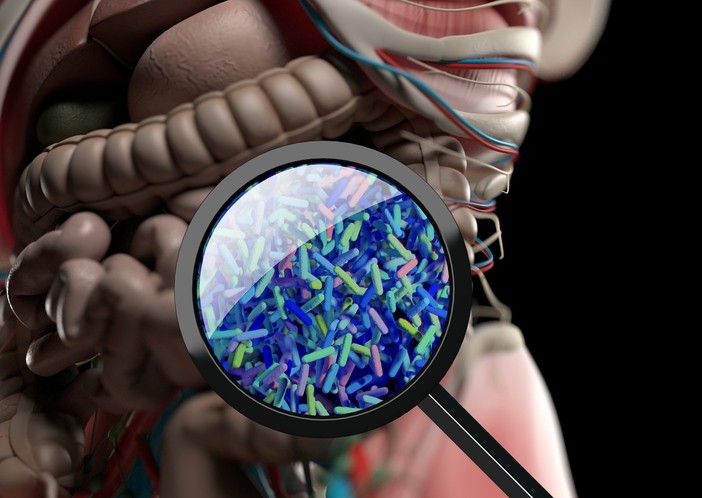Study: Gender's impact on how processed foods shape the microbiome

Consumption of UPFs - formulations made from refined food substances as well as simple sugars, salt, fat, and various additives - is increasing worldwide, especially in high-income countries. As well as being linked with the rise in obesity, several studies have found associations between UPFs and health problems such as hypertension, obesity, metabolic syndrome, depression and type 2 diabetes - pathologies connected with oxidative stress and inflammation, which could modify gut microbiota configuration, richness and diversity.
Several others factors can also affect gut microbiota composition, including gender yet quite often this factor has been ignored in gut health focused studies.
The authors of the current study therefore argue changes in the microbiota produced by UPFs according to sex should be further studied. Thus, the aim of this work was to assess the effects of UPFs consumption on human gut microbiota composition in normal weight, overweight and obese Spanish populations, taking into account the role of gender.
The study
A total of 359 participants were included in this investigation. Participants who did not provide fecal samples in a correct manner or consumed antibiotics before collecting the samples (n = 12) or did not fulfill the food frequency questionnaire (n = 1) were discarded.
Habitual dietary intake at baseline was collected with a food frequency questionnaire (FFQ). Participants provided information about the number of times they had consumed each food item during the last year (from never/almost never to >6 servings per day). Total energy (kcal) and macronutrient intakes (%) were calculated from these answers.
Participants provided faecal and blood samples and anthropometric and lifestyle measurements were collected by trained nutritionists.
The participants were separated into 'high UPF consumption' (more than five servings per day) and 'low UPF consumption' (less than three serv/d), while those who consumed 3-5 UPF servings per day were excluded.
Results
The consumption of adjusted UPFs (by BMI, age and energy intake) per day in the study population ranged from 0 to 18 serv/d. In women, adjusted UPFs consumption ranged from 0 to 10 and in men from 0 to 17.
In the female population, the participants who consumed more than 5 serv/day of UPF presented more cases of depression and anxiety, energy intake and higher weight and hip circumference.
In the male population, those that consumed more than 5 serv/d presented a significantly higher energy intake, BMI, weight, triglycerides, ALT, and TNF levels. On the contrary, levels of HDL-c were lower in the men who consumed more UPFs.
The comparison between men and women who consumed less than 3 adjusted UPFs revealed significant differences in alcohol consumption, being higher in men. On the other hand, men and women who consumed more than 5 adjusted UPFs presented significant differences in industrially processed meat (more consumed by women), alcohol and sugar-sweetened beverages (SSB, more consumed by men). The consumption of industrially processed dairy, cereals, pizza, margarine, fried food, cookies, light products, ready products, mayonnaise and pastries was similar in both sexes.
When looking at the gut microbiome analysis, the data reveals women who consumed more than 5 serv/d of UPFs presented a significant increase in Acidaminococcus, Butyrivibrio, Gemmiger, Shigella, Anaerofilum, Parabacteroides and Bifidobacterium. Dairy-related Bifidobacteriaare used in an extensive variety of probiotic dairy products, such as milk, cheese, and frozen dairy products therefore the researchers suggest a high consumption of these products may contribute to the increase of Bifidobacterium, although more investigations are needed
Melainabacter (beneficial genus due to the production of vitamin K and the digestion of plant fibers) and Lachnospira (linked to the Mediterranean diet) were significantly less abundant in women who consumed more UPFs.
Enterobacteriales also increased with the consumption of UPFs in women. These are bacteria that have been related with dysbiosis, gut inflammation and the development of inflammatory bowel disease.
On the other hand, men who consumed more than 5 serv/d of adjusted UPF presented a significant increase of abundance in Granulicatella (associated with obesity) and Blautia genera (associated with fat accumulation), but a decrease in Anaerostipes.
The report states: "The reason why some bacteria presented a higher abundance in women and others in men needs more investigation in order to clarify the role of sex in the intricate relationship between diet and microbiota. In this context, an estrogen–gut microbiome axis has been proposed. The gut microbiota regulates estrogen levels through the secretion of β-glucuronidase, an enzyme that deconjugates estrogens into their active forms.
"It has been proposed that a dysbiosis characterized by lower microbial diversity might impair this process, decreasing deconjugation and reducing circulating estrogen levels. On the other hand, it is known that the composition of the gut microbiota is directly influenced by sex hormones. For example, 17β-estradiol supplementation is able to change gut microbiota diversity and the Firmicutes/Bacteroidetes ratio in male mice; and changes in the sex steroid balance (i.e., circulating estradiol to testosterone ratio) have been linked to altered gut microbiota composition including the Firmicutes to Bacteroidetes ratio."
The researchers conclude: "This study suggests that a consumption higher than five servings per day of UPF may affect gut microbiota composition differently in women and men.
"This work evidences that the consumption of UPFs may affect gut microbiota composition in a different manner depending on sex, which might be a mechanism involved in the risk for different diseases. We also evidenced that some bacteria were associated with specific groups of UPFs. However, further research is needed to confirm these observations."
The researchers note some of the limitations of this study include the use of FFQ not exactly designed t collect data on UPFs, as well as the relatively small population.
Source: Nutrients
Cuevas-Sierra, A.; Milagro, F.I.; Aranaz, P.; Martínez, J.A.; Riezu-Boj, J.I.
"Gut Microbiota Differences According to Ultra-Processed Food Consumption in a Spanish Population"






